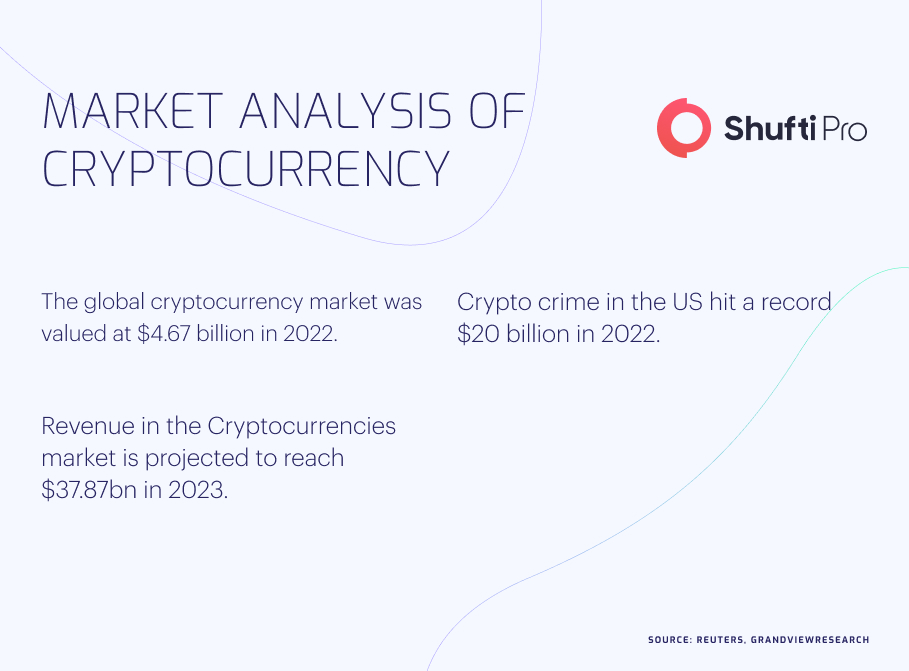Crypto Regulations in the US and UK | A Comprehensive Overview

Financial regulators struggle to understand how to categorise and regulate cryptocurrency that does not entirely fit into the existing asset category. The collapse of FTX in 2022 highlighted the significance of stringent regulations for the crypto sector. Governments seek regulatory oversight of the crypto market to manage their economies better. However, regulating an asset that attracts some investors is a challenge as it runs outside of governmental control. The most significant cryptocurrency-using nations are developing their legal structures in a variety of ways, which further muddles the uncertain regulatory landscape for this new asset class.
Crypto Regulations in the US
The US has used a hot-and-cold strategy to regulate the crypto market. Financial market regulators are clamping down on a sector where concerns over money laundering and cybercrime are rampant. However, some in Congress hope to have an extensive new framework enabling businesses to grow.
In March 2022, the Biden government issued an executive order that requested federal officials to evaluate potential risks and opportunities in cryptocurrency. A strategy published in January 2023 to reduce crypto-related risks, encouraging regulators to “ramp up enforcement” and Congress to “expand regulators’ powers.” The Federal Reserve, the Federal Deposit Insurance Corp (FDIC), and the Office of the Comptroller of the Currency (OCC), soon after issued a joint statement underlining the risks that crypto-assets pose for banks. Although the statement doesn’t prohibit banks from offering cryptocurrency services, it emphasises that holding or issuing, or transferring principal crypto-assets to a public, open, and/or decentralised network or similar is most probably to be incompatible with safe and sound banking practices.
US Regulators Treat Cryptocurrency as a Security
The US has been trying to regulate crypto platforms rather than governing cryptocurrencies themselves.
According to the Founder and Principal of Keala Advisors, Christopher Mitchell, government officials seek to view cryptocurrencies as conventional securities whilst attempting to limit their ability to be handled and operated within the financial system like traditional securities.
In March, the Chair of the SEC, Gary Gensler, stated that investment advisors could not use crypto platforms and lenders as authorised custodians in case they are not governed by the same regulations as stock exchanges.
Many of the problems revolve around whether or not crypto is categorised as a security. This discussion occurred before FTX’s recent collapse and CEO Sam Bankman-Fried’s SEC charges for scamming investors of over $1.8 billion.
Suggested Read: FCA says Bankman Fried FTX Cryptocurrency Exchange Not Regulated in the UK

Crypto Regulations in the UK
Because of broader shifts in national leadership, crypto rules are also in flux in the United Kingdom. Rishi Sunak’s appointment as prime minister in October 2022 is notable in the crypto community due to his stand earlier in the year. When Sunak was the chancellor of the exchequer, the equivalent of the finance minister in the UK, he unveiled a startling plan that included a plan to transform the UK into an epicentre for the worldwide crypto technology industry. His plan to regulate stablecoins, which would have allowed them to be recognised as legitimate payment, was the most significant. Whilst introducing the strategy, Sunak stated that It’s his goal to make the UK a leading global centre for crypto asset technology. Today’s steps will ensure companies can invest, develop, and scale up in this region.
The UK Supports Crypto Innovation, Though Concerns Linger
It is believed that the UK and the US are comparable in terms of cryptocurrency legislation. Regulations have facilitated the invention in the crypto industry as authorities are cracking down on money laundering and other financial crimes in the sector. The Financial Conduct Authority (FCA), the UK regulator, even outlawed all activities by the giant crypto exchange worldwide Binance in the summer of 2021.
How Can Shufti Help?
Shufti offers a globally trusted identity verification and KYC solution to help businesses abide by crypto regulations in numerous ways. Available in 230+ countries and territories and supporting 150+ languages, here‘s what else makes Shufti a leading IDV suite provider in the world market:
- Identity Verification: One of the main criteria of crypto legislation is verifying a customer’s identity before authorising them to utilise a crypto service. This is where Shufti steps in. Our AI-powered identity verification solution enables businesses to swiftly and securely confirm the identity of clients by checking their identity documents and through biometric verification.
- AML Screening: AML regulations require companies to screen customers against various sanctions and watchlists. Shufti’s AML screening solution screens clients against 1700+ global watchlists, reducing the risk of money laundering and financial crime whilst ensuring compliance.
- Transaction Monitoring: The crypto sector is required to monitor transactions for suspicious activity, like transfers to high-risk countries or more significant transactions. This is where Shufti’s transaction monitoring solution comes in. The robust transaction monitoring solution helps the cryptocurrency market automate this process, flagging any suspicious activity for a comprehensive review.
- Compliance Reporting: Shufti can assist crypto businesses in producing compliance documentation and audit trails to demonstrate to authorities and other stakeholders that they adhere to crypto legislation.
Still confused about how Shufti’s identity verification suite helps the crypto sector reduce the risk of heavy fines and other penalties?

 Explore Now
Explore Now













